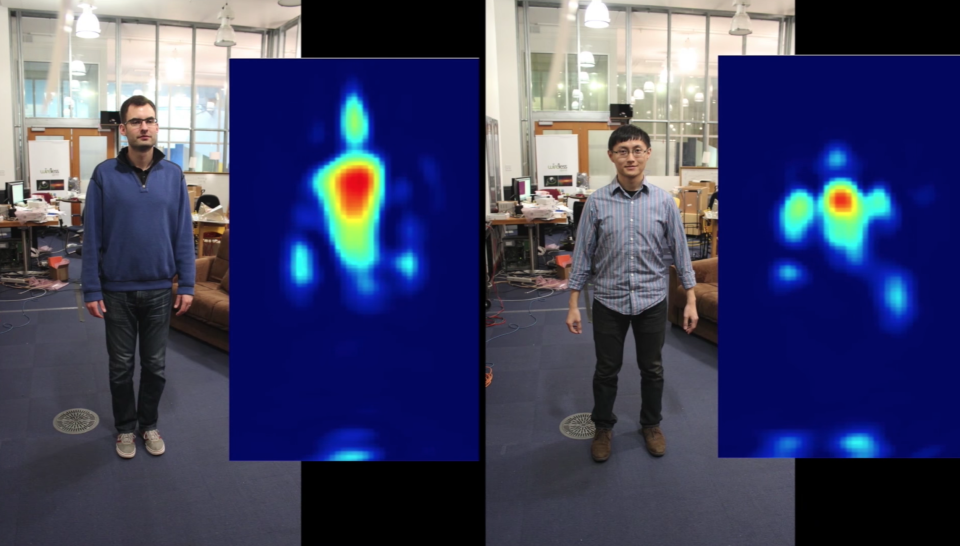MIT built a health-tracking sensor that can ‘see’ through walls
It's already being tested in over 200 homes.
An MIT professor has built a prototype device that can wirelessly track your health -- even through walls -- using a mix of radio signals and machine learning. Dina Katabi's gadget resembles a WiFi router and is designed to sit in your pad and monitor your breathing, heart rate, sleep, gait, and more as you go about your day. It's already doing that in over 200 homes around the US of both healthy people and those with Parkinson's, Alzheimer's, depression, and pulmonary diseases.
Here's how it works: The device emits radio signals that bounce off nearby people's bodies and back to the box. The neural network under the hood then analyses these reflections to estimate a person's posture and movements without cameras and behind walls. It can also extract all that valuable health data from those same signals.
The box "takes advantage of the fact that every time we move—even if it's just a teeny, tiny bit, such as when we breathe—we change the electromagnetic field surrounding us," writes Rachel Metz in MIT Technology Review.
Research has shown that the device can accurately monitor sleep, including individual sleep stages -- meaning it could replace laborious studies that require participants to wear electrodes and snooze in a lab. Another benefit touted by its creator is its ability to silently track people over time to give better insights into a patient's life and the medication they're taking. This, says Katabi, could help doctors figure out how some meds help certain patients but not others.
In terms of privacy, the device is encrypted and only works with your consent. In addition, it requires the user to complete a set of specific movements before it can track you, making it virtually impossible to snoop on an unwilling participant.
Of course, wearables with heart rate monitors are now the norm (the Apple Watch 4, meanwhile, even packs an electrocardiogram, or EKG, and can detect atrial fibrillation) and there's sleep tracking devices to monitor the amount of quality shut-eye we're getting. But this piece of kit, its maker claims, can discretely beam even more granular physiological data to your physician -- plus you don't have to wear it.
Next up, Katabi's startup Emerald Innovations plans to commercialise the tech having recently made it available to biotech and pharmaceutical companies for research.



